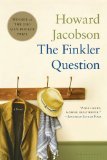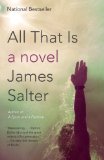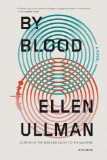Summary | Excerpt | Reviews | Beyond the book | Read-Alikes | Genres & Themes | Author Bio

The Finkler Question is a scorching story of friendship and loss, exclusion and belonging, and of the wisdom and humanity of maturity. Funny, furious, unflinching, this extraordinary novel shows one of our finest writers at his brilliant best.
"He should have seen it coming. His life had been one mishap after another. So he should have been prepared for this one…"
Julian Treslove, a professionally unspectacular and disappointed BBC worker, and Sam Finkler, a popular Jewish philosopher, writer and television personality, are old school friends. Despite a prickly relationship and very different lives, they've never quite lost touch with each other - or with their former teacher, Libor Sevick, a Czechoslovakian always more concerned with the wider world than with exam results.
Now, both Libor and Finkler are recently widowed, and with Treslove, his chequered and unsuccessful record with women rendering him an honorary third widower, they dine at Libor's grand, central London apartment.
It's a sweetly painful evening of reminiscence in which all three remove themselves to a time before they had loved and lost; a time before they had fathered children, before the devastation of separations, before they had prized anything greatly enough to fear the loss of it. Better, perhaps, to go through life without knowing happiness at all because that way you had less to mourn? Treslove finds he has tears enough for the unbearable sadness of both his friends' losses.
And it's that very evening, at exactly 11:30pm, as Treslove hesitates a moment outside the window of the oldest violin dealer in the country as he walks home, that he is attacked. After this, his whole sense of who and what he is will slowly and ineluctably change.
The Finkler Question is a scorching story of exclusion and belonging, justice and love, aging, wisdom and humanity. Funny, furious, unflinching, this extraordinary novel shows one of our finest writers at his brilliant best.
There are three good reasons to read The Finkler Question:
1) To gain insight into the many views and disparate experiences of Jewish people in the 21st century.
2) To experience the almost perfect blend of humor and seriousness in the writing.
3) To enjoy a rich story about the human condition that includes friendship, love, religion, ambition, loss, aging and dying. .....continued
Full Review
 (519 words)
(519 words)
(Reviewed by Judy Krueger).
Nonfiction

It's Easier to Reach Heaven Than the End of the Street, Emma Williams: 2010 memoir - an invaluable book for anyone wishing to understand the tensions in the region; particularly notable for the author's ability to boil down the situation's complexities into easily understandable and relatable prose.
A Tale of Love and Darkness, Amos Oz: A stunning 2004 memoir about the author's childhood in Israel with the back story of his parents and how they came from Europe as part of the Zionist movement.
Fiction:
Gentleman's Agreement, Laura Hobson: 1947 bestseller ...

If you liked The Finkler Question, try these:

by James Salter
Published 2014
An extraordinary literary event, a major new novel by the PEN/Faulkner winner and acclaimed master: a sweeping, seductive, deeply moving story set in the years after World War II.

by Ellen Ullman
Published 2012
The award-winning writer returns with a major, absorbing, atmospheric novel that takes on the most dramatic and profoundly personal subject matter